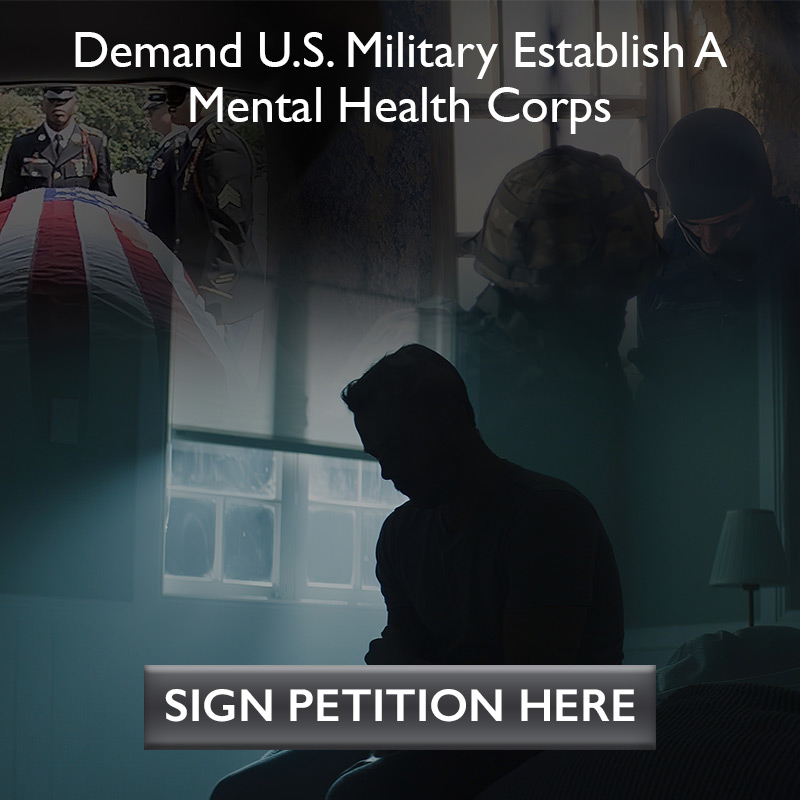Hey Folks —
VERY emotional Memorial Day. Veterans lost and living on everyone’s minds and hearts. I say GOOD!! I say, we MUST stay in our hearts on these subjects (really, don’t forget!) and then, and only then, will we create the united courage, wisdom and processes to actually become a country that takes care of their own.
What a beautiful, deeply humanitarian thought, right?
I mean, that’s why I’m here. That’s why I’m alive. That’s why I’ve said ‘yes’ to making this film — not for religious, political or popularity gain, but to truly, truly take part in the human experience and practice a kindness that is, quite frankly, beyond my comfort zone.
There were two current documentary pieces that aired this past weekend on the subject of our veteran situation — what happens when they come back. In fact, the one on PBS, a 3-parter was titled just that: “Coming Back”. The other was a feature done on “60 Minutes”.
Both shared the stories of veterans dealing with life after the service, including coping with post traumatic stress and mostly trying to find a sense of purpose and identity again. The message that came through was: Being a warrior has been my life. Now I’ve gotta figure something else out.
A sense of great aloneness in this figuring-out permeated.
I admired the production values all around. There were moments when I really was pulled in emotionally to the stories. I appreciated the efforts to deliver the complexity of the situation, yet I found myself feeling as though I was standing on the outside, nose pressed up against the window, looking in. Distanced. Here you go — see the ginormous mess AGAIN, but there’s no access, or a way in to suggest help.
Actually, with all due respect, the “The War Within” — the “60 Minutes” piece — featured a test therapy program for veterans which took place in Arkansas. Caring professionals and 28 willing veterans come together for the purpose of recovery from PTSD.
The veterans go deep and face the demons of their combat experiences through talking, writing, re-living their trauma — all with a fellowship of those who understand, people they feel safest with. This TV docu-piece, only thirteen minutes long, though focused on an isolated program, at least presented hopefulness — a step in a more empowered direction.
Yet this is what really blows my mind —
Neither project addressed the larger conversation, which asks the question: How can the military, corporate and non-profit sectors ALL come together to implement a real, nationwide system of help for these soldiers who have served in the military? Bigger mind blower — no cohesive, long-term process has ever or currently exists.
No, we’re not fully and comprehensively taking care of our own and I’ll add — our best.
Look, you know from the radio shows we’ve done that we’ve interviewed some incredible corporate, non-profit, mental health, military and even Veterans Administration heroes. Yes, they really are heroes — inspired people doing inspiring things in the world. They are good-hearted, smart folks who SEE the wealth of resources, the skills, the possibilities for powerful change regarding our veteran situation.
It’s not just bull — there really is hope and help available.
Insofar as treating post traumatic stress and the deeper moral injuries of war, we understand the brain and mental health issues so much more.
Think about it:
There’s compassionate, healing and well-tested therapies that exist — like the one being done in Arkansas. There’s evidence that treating the body, mind and spirit as a wholeness concept is essential to living a productive and functional life.
There’s money — loads of it — that can be used so effectively to engage all of this knowledge and expertise and it’s not being utilized efficiently, if at all.
Again though —
The question is HOW do we create a humanitarian summit? Yes, let’s think that expansively!! Let’s think this one through from the depth of our hearts. What?Think with our hearts?
Yes, oh, yes — HOW do we gather the military, corporate and non-profit genius together to develop a working, productive system of re-integration from active service — psychologically, emotionally, physically, spiritually, financially — for the men and women who deserve EVERY skill, resource and kindness this country has to offer?
If we don’t come up with a way, a plan, a prioritized direction soon it’s going to cost us dearly — in our souls and financially.
STRANGER AT HOME is a film that is dedicated to elevating the conversation — addressing the HOW. It’s what sets our project apart — not to mention giving a real voice to the impacted family members who are struggling right along with the veterans. We all identify with family, right? Again, GOOD! Whatever releases us from our comfort zone and shifts us into our power to create the world we prefer to live in I say, bring it on!
We need help to make STRANGER AT HOME happen — to cut through the noise of the problem and make a film focused on solutions.
If you’ve contributed to our campaign, thank you.
If you’re thinking about contributing, now would be a great time.
If you have a few spare minutes a day, spread the word to everyone you know that STRANGER AT HOME is a documentary film project that’s different than all others on the subject of PTSD and the deeper psychological & emotional injuries of war — and ask them to contribute.
Here is the link to our awesome campaign site where you can commit to taking action with us:
http://igg.me/at/stranger-at-home
With great appreciation,
Beth
Here’s an excerpt from a PBS interview with Dr. Jonathan Shay in which
he proposes one very concrete solution

